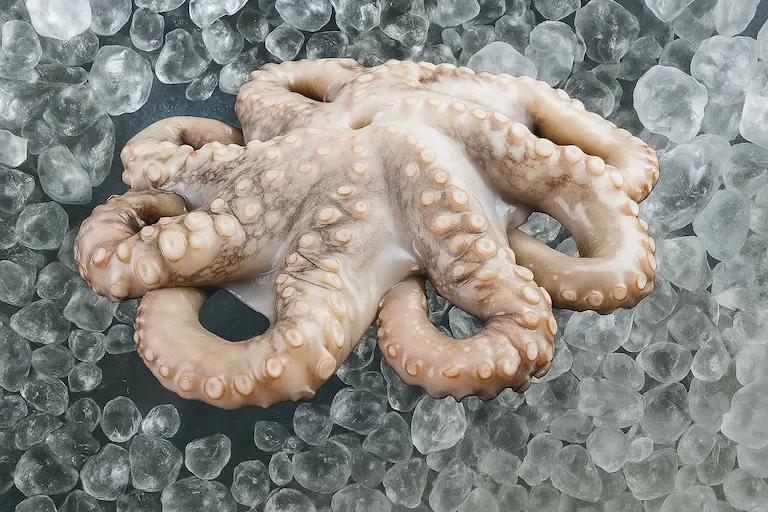Octopus

Octopus is a marine creature with eight legs and a soft body, known for being both a culinary delicacy and a fascinating animal in nature. Octopuses are recognized for their intelligence, flexibility, and hunting skills. In seas such as the Mediterranean, Aegean, and Black Sea, some of the most common local species include the “şeker ahtapot” (sweet octopus) and “zeytin ahtapotu” (olive octopus).
Thanks to its flavorful meat, octopus is widely used in cooking. It is available both fresh and frozen and is a popular seafood item in many cuisines around the world.

